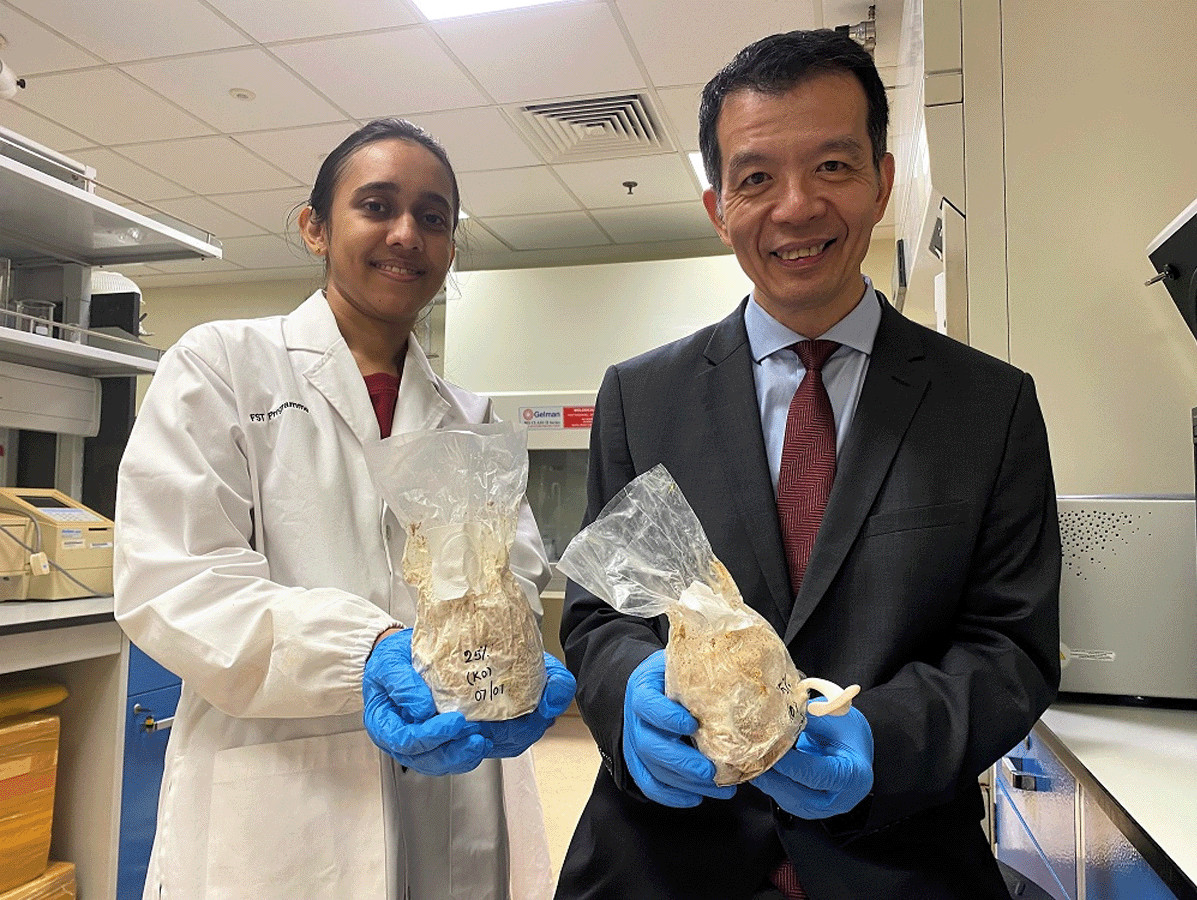
Scientists from Nanyang Technological University, Singapore (NTU Singapore) have developed a technique to cultivate a fungi-based food product that could serve as a healthier, better tasting, and greener alternative to plant-based protein.
The fungi used to cultivate the product is grown from a base of nutrient-rich common food waste, which infuses the fungi with more essential nutrients, such as protein, iron, and amino acids. This makes them more nutritious than ingredients commonly used in plant-based alternative meat, such as peas, chickpeas, wheat gluten, and soy.
The cultivation of the NTU-developed food product would also offer an opportunity to reuse common food waste and by-products of agriculture and the food and beverage industry, such as soybean skin, wheat stalk, and brewers’ spent grain, a by-product of the beer-making industry.
To scale-up their fungi-cultivation method, the NTU team is collaborating with The FOODBOWL, a national network of open access food processing facilities to help food businesses and startups globally innovate, scale up and commercialise new products - ultimately to international scale. One New Zealand startup that is collaborating with NTU’s FST programme to implement the fungi cultivation technology in its food products is Off-piste Provisions, a plant-based meat company.
The NTU-developed food product, which is based off the edible white mushroom (Agaricus bisporus), would also address several critiques of plant-based protein, which often need flavouring to be added to taste good, are highly processed, and can lack some essential nutrients, such as iron and amino acids.
The food product of NTU could stand to be more easily accepted by consumers, as it already resembles meat more than other plant-based proteins, shredding like how cooked chicken would. It also tastes more like meat, as it contains higher levels of amino acids, glutamic and aspartic acids, compounds that commonly occur in animals, which give their flesh that trademark ‘meaty’ flavour.
Besides playing an advisory role to startups, the researchers at NTU’s FST programme hope to develop their product to further boost its nutritional profile, as well as reduce food waste. They also hope to commercialise their solution by 2024.
Source: NTU Singapore